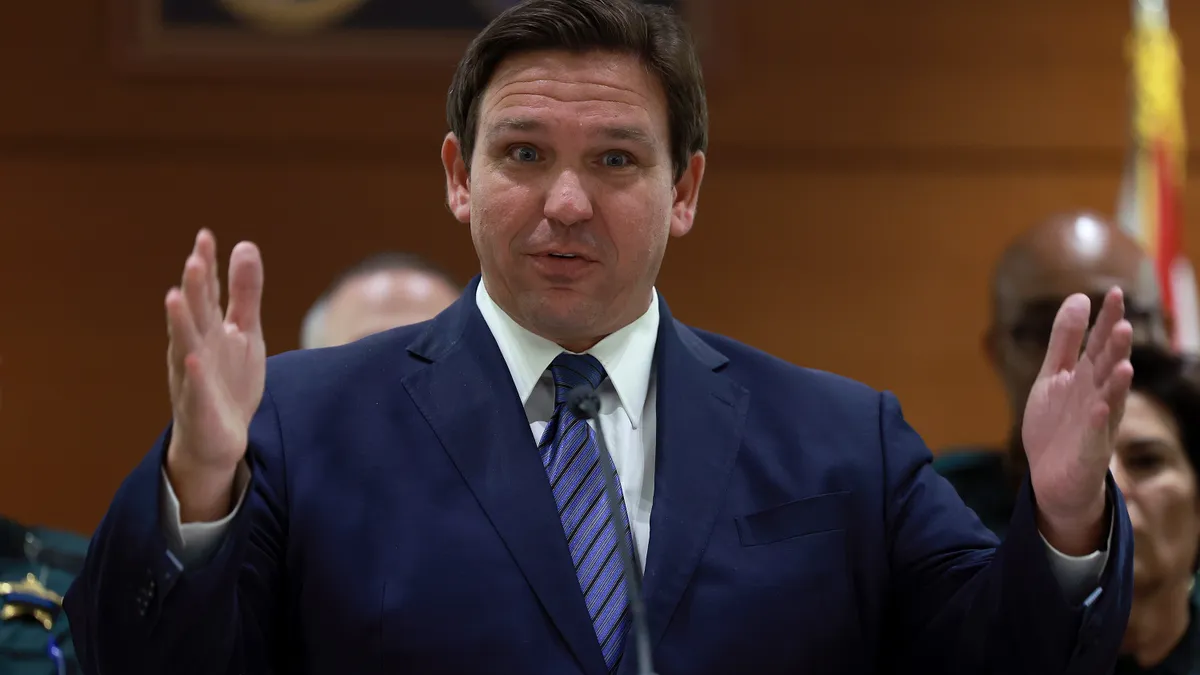Dive Brief:
- The Florida State Board of Education on Wednesday unanimously approved several new rules implementing the Parental Rights in Education law, known as "Don't Say Gay,” that took effect on July 1.
- One rule will allow teachers to be fired and their licenses suspended or revoked if they "intentionally provide classroom instruction to students in kindergarten through grade 3 on sexual orientation or gender identity."
- Another requires districts that allow students to use bathrooms, locker rooms or other facilities based on their gender identity to post their policy online and inform parents of the procedures being implemented. At a minimum, the policies must include how the district plans to supervise students in locker rooms where transgender youth are permitted, such as by stationing chaperones or coaches there.
Dive Insight:
The votes come almost four months after Florida implemented controversial laws that many teachers say restrict their ability to comfortably address race and gender in the classroom. Some educators and parents also charge that the laws discriminate against LGBTQ students.
Prior to the board's votes, state residents expressed both support and concern for the measures implementing the laws.
According to a Florida Department of Education survey of all state districts shared at the board meeting, 31 districts said they had policies relevant to the new laws. Of those, 11 districts have policies "that appear to be contrary to state or federal law" in these areas.
"We're going to follow up with these districts," said Jacob Oliva, senior chancellor for the Florida Department of Education, at the board meeting. Oliva estimates the districts without compliant policies will be able to update them by the board meeting in January 2023.
Firing, or revoking or suspending licenses, of Florida teachers who touch on gender identity and sexual orientation in their classrooms is in line with a broader trend nationwide, where lawmakers in some states are attaching punitive measures to classroom censorship laws.
The "language promotes self- and soft censorship under threat of job loss," Stephana Ferrell, a mother of two elementary school children and co-founder of Florida Freedom to Read Project, said at the state school board meeting prior to the board votes.
On the other hand, some were pleased with the board's decision.
Sarah Calamunci, a mother of four and state education leader for County Citizens Defending Freedom, said the enforcement of the law would allow teachers to do their job and provide a safe environment despite "a few bad apples in the system."
"A rule, law, or statute is powerless without teeth in the language and a governing body willing to enforce it.”







 Dive Awards
Dive Awards



